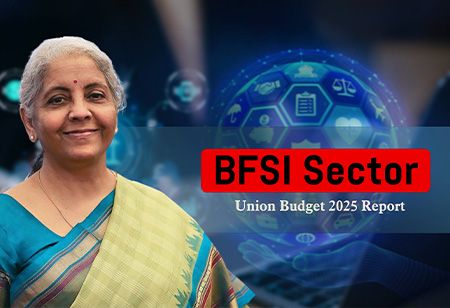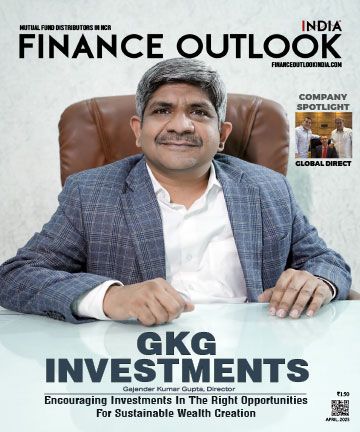Finance Minister Nirmala Sitharaman presented the Union Budget for the fiscal year 2025-26 in Parliament, delivering a speech of around 74-minutes that included several important announcements. While the Economic Survey focused on deregulation, the Union Budget 2025 was primarily consumption-driven, with boosting citizens' purchasing power as its core focus. Industry leaders have now weighed in on the budget, offering their perspectives and opinions.
FDI Expansion, Digital Shift, and Tax Incentives Transform Insurance
Foreign Direct Investment (FDI) ceiling for Indian insurance is in the range of 74 to 100 percent. With the far-reaching nature of the policy amendment, considerable changes are expected to sweep into this industry, attracting international players from all corners of the world and inviting stronger competition. Moreover, Increased foreign capital and know-how are expected to breed innovation in the sector while making insurance products less expensive and more accessible to the mass population. This shift in the policy aligns with the government vision of "Insurance for All by 2047." The budget applies to incentivize digital transformation in the sector with its motto to ease the regulatory mechanism and welcome foreign investments for smooth delivery of financial solutions and good customer experience.
Moreover, the budget outlines tax incentive measures such as the increase in tax deduction under Section 80C, rationalizing GST rates, as well as granting extended regulatory support to stimulate technological innovation. Such reforms would increase policy gains, ensure financial inclusion, and eventually lead to economic stability.
“The government's decision to increase FDI in insurance from 74% to 100% is a transformative step. This policy balances global capital and expertise with domestic economic interests. We expect it to attract global players, foster competition, drive innovation, and make insurance more affordable and accessible. The influx of foreign investment will also catalyze digital transformation, aligning with our vision of leveraging technology for seamless financial solutions”, said Kunal Varma, Co-Founder and CEO, Freo.
Enhancing Financial Access: KYC Reform, MSME Support, & Digital Economy
The BFSI comes under Union Budget 2025 taking groundbreaking steps to better secure and suit the finances of the employable person or institution. The awarding of 100% Foreign Direct Investment in the insurance sector is expected to provide better competition and greater accessibility, which is one of the biggest highlights. This legislation becomes important in increasing insurance availability, especially in underserved niches, thus making health, life, and general insurance inexpensive for the masses. Apart from this, the budget doubles the credit limits for MSMEs and startups while enforcing a reduced 1% fee for priority sectors and parameters under the revamped PM SVANidhi scheme, which push cases for innovation and scaling up for businesses to reaffirm the digital-first economy of India.
UPI-ready credit cards and capacity-building support under the PM SVANidhi program will ensure that credit reaches street vendors and micro-businesses with minimal obstruction. Besides, this clustering of programs provides tremendous opportunity for creating a solid platform for savings, investments, and risk protection, allowing more Indians to pursue long-term financial security.
Kunal Varma, Co-Founder and CEO, Freo said, “The Union Budget 2025 makes significant strides in expanding financial access and security for businesses and individuals. With doubled credit limits—₹10 crore for MSMEs and ₹20 crore for startups—alongside a lower 1% fee for priority sectors, the enhanced credit guarantee framework aims to unlock ₹1.5 lakh crore in credit over five years, enabling businesses to scale and innovate more effectively. “
“The revamped PM SVANidhi scheme, with UPI-linked credit cards and capacity-building support, is a step towards seamless credit access for street vendors and micro-businesses, reinforcing India’s digital-first economy. Beyond credit, financial security remains a key focus, with 100% FDI in insurance expected to increase competition, improve accessibility, and expand insurance coverage—especially in under-served segments—making health, life, and general insurance more affordable. These measures create a stronger foundation for savings, investments, and risk protection, ensuring more Indians have the tools to build long-term financial stability”, He added more.
The Union Budget 2025 marks an inflection point in India's financial universe, with the attendant reconstitution of the Central KYC Registry. The objective of the revamped KYC framework, which this government has initiated, is to remove redundant layers of KYC and speed up digital onboarding in order to foster financial inclusion. With automation and AI technologies in place, the proposed model will foster real-time compliance, reducing barriers for both financial institutions and customers.
In the insurance industry, the 100 percent FDI limit should prove advantageous for the foreign players who could bring product knowledge and deeper market penetration. Such a change is bound to increase competition, improve accessibility, and widen coverage in primarily underserved areas. In addition, NaBFID will create an impact on infrastructure financing through partial credit guarantees, thus addressing capacity gaps in underwriting large projects. The DPI launch will disrupt the area of trade and supply chain finance by cutting costs while accelerating transactions. All these measures together contribute toward a secure, transparent, and nimble financial ecosystem, thus ensuring progress and trust.
“The government's initiative to revamp the Central KYC Registry in 2025 marks a transformative leap toward a more efficient and seamless compliance process. By streamlining the KYC framework, this move will eliminate redundancies, accelerate digital onboarding, and further enhance financial inclusion. With technology at the forefront, automation and AI-powered solutions will drive real-time compliance, minimizing friction for both financial institutions and customers. This visionary step lays the foundation for a more secure, transparent, and agile financial ecosystem in India, empowering progress and trust across the sector”, said Vishal Jain, CEO, Manipal Business Solutions.
Pratik Shah, Financial Services Leader, EY India, said, “Simplifying KYC processes is a step in the right direction that will help streamline and bring down costs of customer acquisition significantly. The 100% FDI limit in insurance will open doors for foreign players who, with their knowhow of products, can foster deeper market penetration. NaBFID's impact on infrastructure financing is pivotal, addressing a longstanding gap where many organizations lacked internal capacity for underwriting such projects. NaBFID's partial credit guarantees, will help create fillip in infrastructure financing space. Moreover, the launch of the Digital Public Infrastructure (DPI) will be transformative for trade and supply chain finance, acting as a digital enabler similar to UPI. This shift will dramatically reduce costs, accelerate transaction speed, and unlock strategic opportunities to capitalize on the rapidly evolving trade finance landscape.”
The transformative measures that are poised to reshape India's financial ecosystem for the BFSI sector,that is expanding from FDI in insurance to enhancing financial inclusion through streamlined KYC processes and infrastructure financing initiatives. These strategic reforms are set to drive innovation, improve accessibility, and foster a more secure, transparent, and agile economy for businesses and individuals alike.


